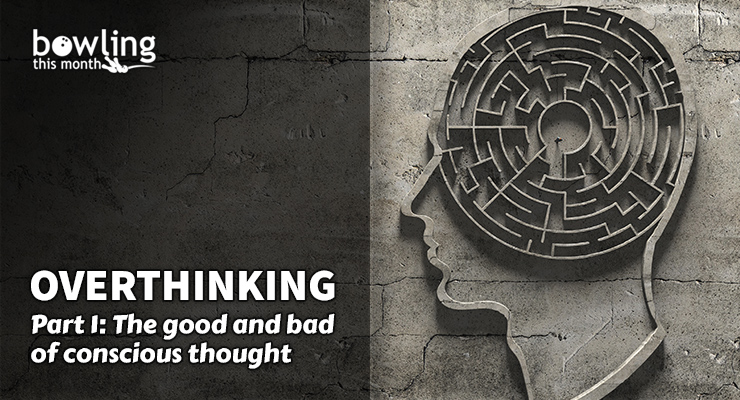Article Contents
- 1. Conscious thought and the stages of learning
- 2. When is thinking needed?
- 3. When can overthinking be good?
- 4. When is overthinking bad?
- 5. Why is overthinking detrimental to performance?
- 6. Conclusion
Note: This article is only available to Bowling This Month subscribers.
It has been a while since my last Bowling This Month article, but I think this will be an interesting topic for bowlers and coaches alike. The inspiration for writing this two-part series came to me after conducting a bowling psychology course for the coaches and athletes of the Singapore Bowling Federation in October 2019.
I appreciatively accepted the opportunity to educate a contingent of successful coaches and athletes, but I was a bit anxious about what I should (and could) cover in the two-day program. Concerns I had included (but were not limited to):
- Would I be able to cover enough information for the two days?
- What content could I provide that might be different and beneficial to all attendees?
- What if I do not provide information that all attendees can learn from?
Yes, even bowling psychology experts have some anxieties when they want to impress others. It is equally normal to feel anxious when uncertain about the content you may present as when you are competing, especially when the competitive “lights” of tournaments are beaming hot for a tournament win.
Ultimately, I took advantage of my bowling coaching and competition experience, sport psychology knowledge, and motor learning expertise to offer knowledge in the two-day course titled, Bowling Is NOT a Game of Perfect: Coaching Effectively to Reduce Athlete Overthinking Tendencies. During the course, I covered motor learning and sport psychology knowledge mainly for coaches, but also included take-home practical information for athletes and coaches to use on the lanes.
In this article series, I will start by introducing the stages of motor learning (i.e. skill acquisition), and then discuss the act of overthinking, describing both when it can be positive and when it can be negative.
For our purposes, I define overthinking as applying too much cognitive effort toward bowling technique when it is unnecessary to do so. This is not a textbook definition, but it is one that is easy to understand and apply. ...
Already a premium member? Click here to log in.


